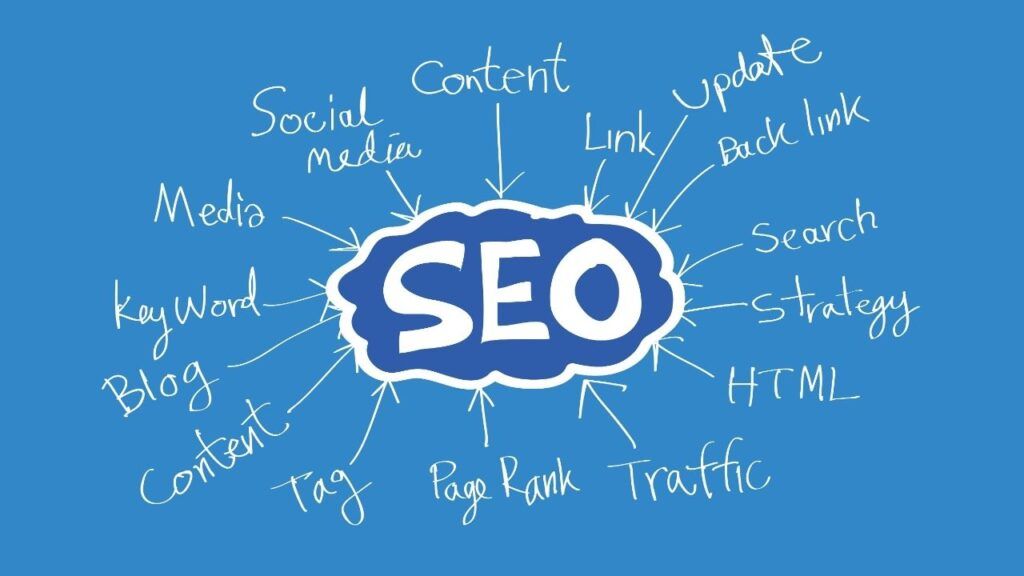What is Search Engine Optimization (SEO)?
Search Engine Optimization (SEO) is the strategic process of improving a website’s visibility in organic (unpaid) search engine results. It focuses on optimizing content, website structure, and authority to rank higher on platforms like Google, Bing, and Yahoo.
Whether you’re a small business in New York, a marketing agency in London, or an eCommerce brand in Dubai, SEO helps you reach potential customers who are actively searching for your product or service.
💡 Did you know? 93% of online experiences begin with a search engine.
Why SEO is Crucial for Global Success
With billions of websites competing for attention, SEO is your gateway to sustainable visibility. Especially for international businesses, ranking on Google in the USA, UK, Canada, Australia, and beyond is crucial for global growth.
Key Benefits of SEO:
- 🔹 Cost-effective – No ad spend required
- 🔹 High ROI – Organic traffic converts better over time
- 🔹 Trust & Credibility – Higher rankings signal authority
- 🔹 Global Reach – Target users across multiple countries
- 🔹 Scalable Strategy – Works for startups & enterprises alike
For more digital marketing tips, check out BlogAdviser365.
Core Pillars of Search Engine Optimization
SEO is built on three main pillars:
1. On-Page SEO
Optimizing elements within your website:
- Title tags
- Meta descriptions
- Headers (H1, H2, H3)
- Content quality and keyword use
- Internal links and image alt texts
2. Off-Page SEO
External signals that influence authority:
- Backlinks from high-authority websites
- Brand mentions
- Social sharing
- Guest posting
3. Technical SEO
Site structure and performance:
- Site speed
- Mobile-friendliness
- HTTPS security
- Schema markup
- Crawlability and indexation
How to Build an SEO Strategy That Works in 2025
Let’s break down a successful SEO strategy for international growth.
Step 1: Smart Keyword Research
Start with user intent. Choose keywords your target audience is actually searching for.
Use tools like:
Target:
- Primary keyword: e.g., search engine optimization
- Long-tail keywords: e.g., best SEO strategies for small business in UK
- Local keywords: e.g., SEO company in New York
Step 2: Optimize Your On-Page SEO
On-Page Checklist:
✅ Title tags between 50–60 characters
✅ Meta descriptions (under 160 characters)
✅ Keyword in the first 100 words
✅ Proper header hierarchy (H1 > H2 > H3)
✅ Add internal links
✅ Use external links to trusted sources like Moz and Google Search Central
Step 3: Create Quality, Optimized Content
Content is still king in 2025. But now, Google wants helpful content that solves real problems.
Tips for creating SEO content:
- Write 1,500+ word blog posts
- Focus on solving the user’s query
- Use bullet points, tables, FAQs
- Include images with alt tags
- Use keywords naturally
Step 4: Build High-Quality Backlinks
Backlinks are the #1 ranking factor, according to Backlinko.
Ways to earn backlinks:
- Guest post on niche blogs
- Use HARO (Help a Reporter Out)
- Create linkable assets (eBooks, guides)
- Build relationships with bloggers
- Submit to business directories (e.g., Yelp, Clutch)
Quality > Quantity. One link from Forbes beats 50 low-authority blog links.
Step 5: Technical SEO Optimization
Technical issues can block search engines from crawling your site.
Run an audit using:
Make sure to:
- Improve mobile speed (check with PageSpeed Insights)
- Use HTTPS for security
- Fix broken links and redirect errors
- Add XML sitemap and robots.txt
- Use canonical tags to prevent duplicate content
Step 6: Optimize for Mobile and Voice Search
60% of searches happen on mobile devices, and voice search is growing fast with Siri, Alexa, and Google Assistant.
Voice SEO Tips:
- Use conversational keywords
- Include FAQs in your content
- Target featured snippets (Google Position 0)
Example Voice Query:
“What is the best search engine optimization strategy in 2025?”
Step 7: Expand with International SEO
Targeting audiences globally? Then you need international SEO.
Steps to follow:
- Use hreflang tags for multilingual pages
- Choose country-code domains (e.g., .co.uk, .ca)
- Translate content with native accuracy
- Target regional search engines (e.g., Yandex for Russia, Baidu for China)
Bonus Tip: Avoid auto-translation tools. Use human translators for cultural accuracy.
Measure and Track SEO Performance
What gets measured gets improved. Use analytics to refine your strategy.
Best Tools to Track SEO:
| Tool | Use Case |
|---|---|
| Google Analytics 4 | Track user behavior, sources, conversions |
| Google Search Console | Monitor keyword clicks, impressions, errors |
| Ahrefs/SEMrush | Backlink analysis, rank tracking |
| Hotjar or Clarity | Heatmaps and user session tracking |
2025 SEO Trends You Shouldn’t Ignore
1. AI-Driven Search Results
Google’s AI updates are rewarding user-first, helpful content over keyword stuffing.
2. Search Generative Experience (SGE)
Google is testing AI-based search summaries. Optimize to get featured in these results.
3. E-E-A-T Framework
Experience, Expertise, Authority, and Trust are now ranking essentials, especially for health, finance, and legal content.
4. Zero-Click Searches
Optimize for featured snippets, FAQs, and knowledge panels to capture traffic without a click.
5. Video & Visual Search
Video content, especially from YouTube, is now appearing in organic results. Use video SEO!
SEO Case Study Example
Case: A UK-based skincare brand implemented SEO in 2024:
- Created 20 keyword-optimized blog posts
- Improved site speed from 7s to 2.1s
- Built 15 backlinks from authority skincare blogs
Results in 6 months:
- Organic traffic increased by 315%
- 1,200+ new monthly leads
- Ranked top 3 for “organic skincare UK”
Final Takeaway: Start SEO Now!
SEO is not a quick fix—it’s a long-term strategy that builds your brand’s visibility and authority across search engines.
If you want your business to rank higher in Google, Bing, and other search engines, now is the time to act.
👉 Need help getting started with SEO? Explore expert articles, trends, and tutorials at BlogAdviser365
Frequently Asked Questions (FAQs)
Q1. How long does SEO take to work?
Typically, 3–6 months to see meaningful results, depending on competition and strategy quality.
Q2. Is SEO better than paid ads?
Yes for long-term ROI. Paid ads offer instant traffic, but SEO builds sustainable traffic over time.
Q3. Can I do SEO myself?
Yes! With the right tools and guides, beginners can handle SEO without an agency.
Q4. Do keywords still matter in 2025?
Yes—but user intent, topic depth, and content quality are even more important now.









